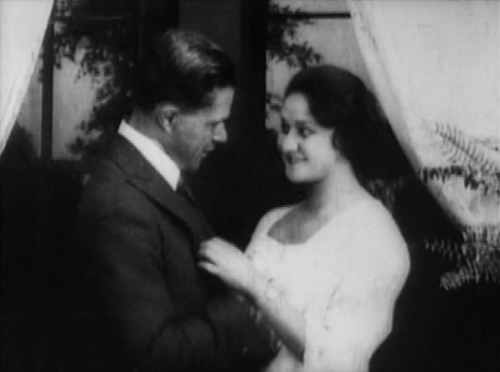Though she faces many obstacles along the way, this is not a film about tragedy or the evil of white people. In fact, despite its disturbingly honest portrayal of the treatment of African-Americans over the years (even having the guts to show lynching and attempted rape), Micheaux never ignorantly accuses white people of being evil or impure – simply the ones whose evil is necessary for the story. And he certainly never painted certain races certain colors or outright discriminatorily slammed another race like a certain director whose film I’ve reviewed…
Instead, Micheaux paints a picture of a woman brought up through tragedy and still wanting to bring some good to the world. She wants to help children in need, she loves fully and purely and does not give in to every romantic whim that comes her way, and she even steps in front of a moving vehicle to save a small, white child. Without even trying, Micheaux creates a character we are born to care for as long as we are not ignorant enough to step in her shoes.
Aside from the social and racial implications the film offers, the film still serves as an enthralling drama about Sylvia’s struggle to both find money to build the school as well as love. Micheaux has an eye for creating rich characters and wants his audiences to really invest time in each and every one. Even though it’s a simple story, the film allows the audience to think deeply about the issues at hand for not only the characters, but all African-Americans post-Civil War era. Sylvia is just one simple woman in a world filled with many tragic stories just like hers, but Michaeux demonstrates the heartbreaking plight of many through the witnessing of her one story. Yes, sometimes film is meant to entertain, but I believe the real purpose of film is to force an audience to think about their own lives as well as the lives of others. In this case, I would say Michaeux crafted a landmark of black cinema that perfectly captures this idea clearly, especially at a time in which the world – just as it was back in 1920 – really needs to see all sides to the story of every person’s life.




No comments:
Post a Comment